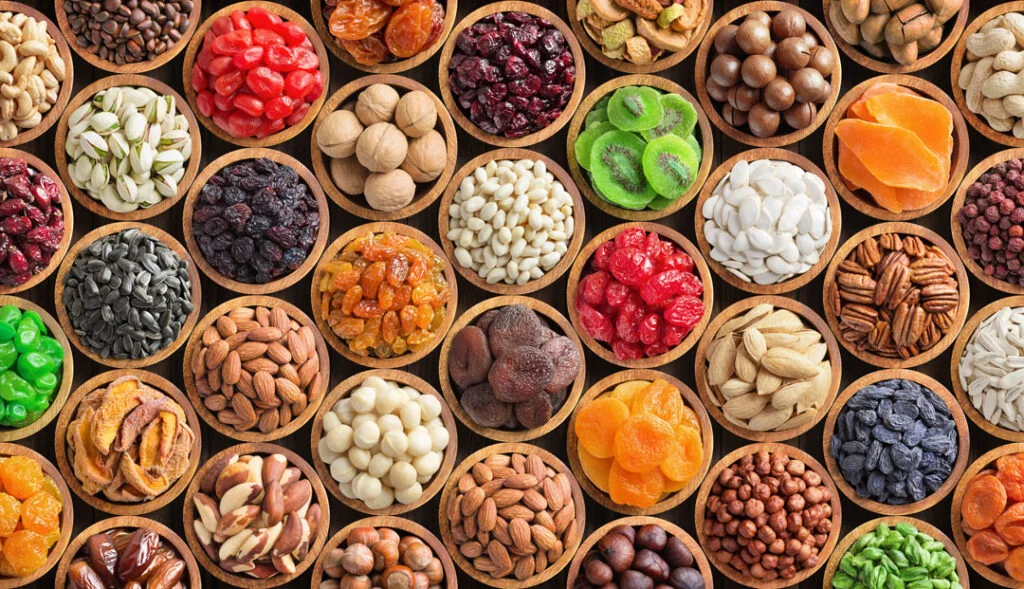
The childhood rhyme reminded us that “beans, beans are good for your heart.” But believe it or not, they may just help you sleep better too, according to new research.
Black beans have been growing in popularity in the dietary world for their value in minerals since the 1980s. (1) According to the U.S. Department of Agriculture (USDA), a cup of cooked black beans contains some of the necessary minerals for a healthy lifestyle and sleep, including 15g of fiber, 611 mg of potassium, and 120 mg of magnesium. (2) Impressive stats for a small legume.
Can Black Beans Help With Sleep?
But another overlooked feature is gaining some attention. Black beans also contain phytochemicals and amino acids, which can help improve sleep and the functioning of blood vessels, according to a 2021 study. (3) Along with the amino acids, black beans contain tryptophan (yes, the very same Thanksgiving turkey-inducing sleep source), which is an amino acid with antioxidant properties responsible for helping in the production of melatonin and serotonin. Melatonin and serotonin help establish the natural circadian rhythm. A 2021 review found that legumes, including black beans, can play an important role in groups of foods that actually help people have higher-quality sleep. (3)
Other key findings supporting the benefit of black beans for your sleep health include a 2020 study, which found that the consumption of black beans could improve vascular health and slow the damage of hypertension. (4) Adding a further link between the importance of sleep and hypertension is the recent study that showed your risk actually increased with the less sleep you had.
How to Add More Black Beans to Your Diet
For consumers looking to add the legume to their diet for not only an improvement to vascular health but sleep as well, a variety of recipe options are available, including in tacos, soups and even brownies. In addition to these health benefits, some research has shown they also help with bone health, diabetes, and weight loss as well. (5) For those who are looking to increase their fiber intake, beans are a quick and easy go-to that you can pair with almost any meal, from scrambled eggs to a rice and lean meat bowl at lunch or dinner.
Scientists aren’t just looking at beans and their tryptophan components for nutrition-backed sleep science, though. In addition, multiple studies point to the role of magnesium, and new research has connected antioxidants to sleep health as well.
While black beans can’t be your only source for healthy minerals, the next time you find yourself in the vegetable aisle at the grocery store, you just might want to grab yourself a can. Your sleep cycle (and your heart) will thank you for it.
Sources
1. Sandborn, Dixie; “Plant science at the dinner table: black beans,” Michigan State University; https://www.canr.msu.edu/news/black_beans_and_the_science_behind_them; December 1, 2021.
2. U.S. Department of Agriculture; “Beans, black, mature seeds, cooked, boiled, without salt,” USDA; https://fdc.nal.usda.gov/fdc-app.html#/food-details/173735/nutrients; April 1, 2019.
3. Zuraikat FM, Wood RA, Barragán R, St-Onge MP. Sleep and Diet: Mounting Evidence of a Cyclical Relationship. Annu Rev Nutr. 2021 Oct 11;41:309-332. doi: 10.1146/annurev-nutr-120420-021719. Epub 2021 Aug 4. PMID: 34348025; PMCID: PMC8511346.
4. Clark JL, Loader TB, Anderson HD, Zahradka P, Taylor CG. Regular Black Bean Consumption Is Necessary to Sustain Improvements in Small-Artery Vascular Compliance in the Spontaneously Hypertensive Rat. Nutrients. 2020 Mar 3;12(3):685. doi: 10.3390/nu12030685. PMID: 32138293; PMCID: PMC7146454.
5. Ware, Megan; “Everything you need to know about black beans,” Medical News Today; https://www.medicalnewstoday.com/articles/289934; January 10, 2018.

























